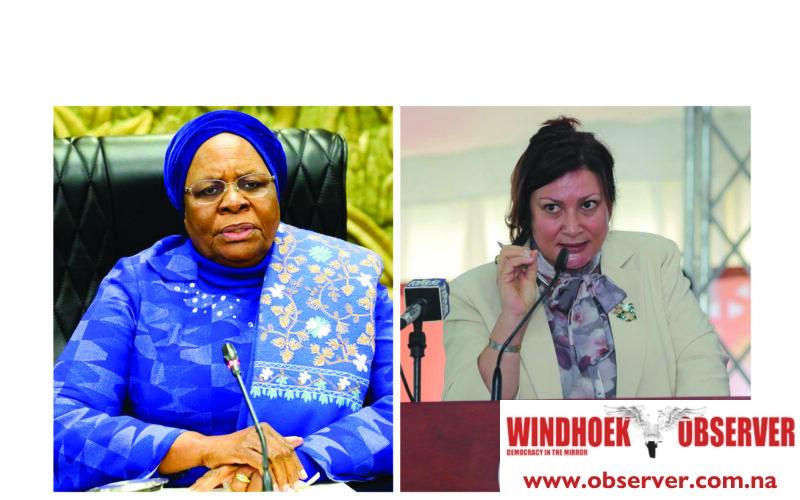Hertta-Maria Amutenja
President Netumbo Nandi-Ndaitwah has declared learning poverty a national development emergency.
She said that no infrastructure project should take precedence over ensuring children can read, write, and perform basic numeracy by age 10.
She made the declaration on Thursday during the national launch of the African Union’s “End Learning Poverty for All in Africa” campaign held in Outjo.
Namibia is one of 25 African countries selected in phase one of the AU campaign.
Learning poverty refers to the share of children who cannot read and understand a simple text by age 10, including those out of school who are considered learning-deprived.
“Our newly launched National Development Plan 6 places education at the heart of our socio-economic agenda. There is no greater infrastructure than the human mind,” said Nandi-Ndaitwah.
She said Namibia must treat learning poverty with the same urgency given to health and infrastructure crises.
While access to education has improved, she noted that foundational literacy and numeracy remain weak, especially in rural and marginalised areas.
“It is our national duty to ensure that no child is left behind, regardless of their socio-economic background,” she said.
Nandi-Ndaitwah called on all ministries to integrate early learning and literacy across sectors and budgets.
“Ending learning poverty demands multi-sectoral political will. It must be prioritised in every budget, plan and policy conversation,” she said.
For the 2025/26 financial year, the government has allocated N$24.8 billion to the ministry of education, innovation, youth, sports, arts and culture. This represents 23.4% of the national budget and 8.9% of GDP.
Of that, over N$12 billion is set aside for pre-primary and primary education over the next medium term expenditure framework.
“This budget exceeds both the SDG4 benchmark of 20% of national budget and the 6% of GDP target. But it’s not only about how much we spend, it’s about how well we spend it,” Nandi-Ndaitwah said.
She urged civil society, the private sector, teachers, and parents to work together.
“Ending learning poverty is possible, but only if everyone commits to it,” she said.
Education minister Sanet Steenkamp said the ministry is shifting focus from access to actual learning outcomes.
“Repetition rates in Grade 1, Grade 4, and Grade 8 stand at 17.2%, 19% and 21.9% respectively. Many children are in school, but not learning,” she said.
She shared results from the 2024 End of Phase Grade 3 assessment.
Only 28% of learners scored 40% or higher in literacy, and just 3% reached 75%. In numeracy, 32% scored 40% or higher, and only 5% achieved 75%.
Early childhood development access remains low.
In 2023, only 51,872 of Namibia’s 414,069 children aged 0–4 were enrolled in early childhood development centres.
Only 17% of educators had formal qualifications.
“We are losing learners too early. In 2023 alone, 17,152 learners dropped out due to various reasons, among them pregnancy, long distances, and household demands,” Steenkamp said.
According to the World Bank’s 2021 data, 53 percent of children in low- and middle-income countries cannot read and understand a simple story by the end of primary school.
Before the Covid-19 pandemic, more than half of children in these countries already faced learning poverty. In Sub-Saharan Africa, the rate often exceeded 80%.
Data shows that progress in reducing learning poverty is too slow to meet the Sustainable Development Goal (SDG) targets. At the current pace, about 43 percent of children will still be learning-poor by 2030.
The AU’s head of education, Sophia Ashipala, said Namibia is part of a growing continental movement.
“You join Zambia, Malawi, Zimbabwe and Nigeria in a campaign that redefines education outcomes. The goal is clear: every child must acquire foundational skills by age 10.”
United Nations resident coordinator in Namibia, Hopolang Phororo, also called learning poverty a development emergency.
“When children lack foundational skills, we are placing limits on their future. Foundational learning must come first, not later,” she said.




